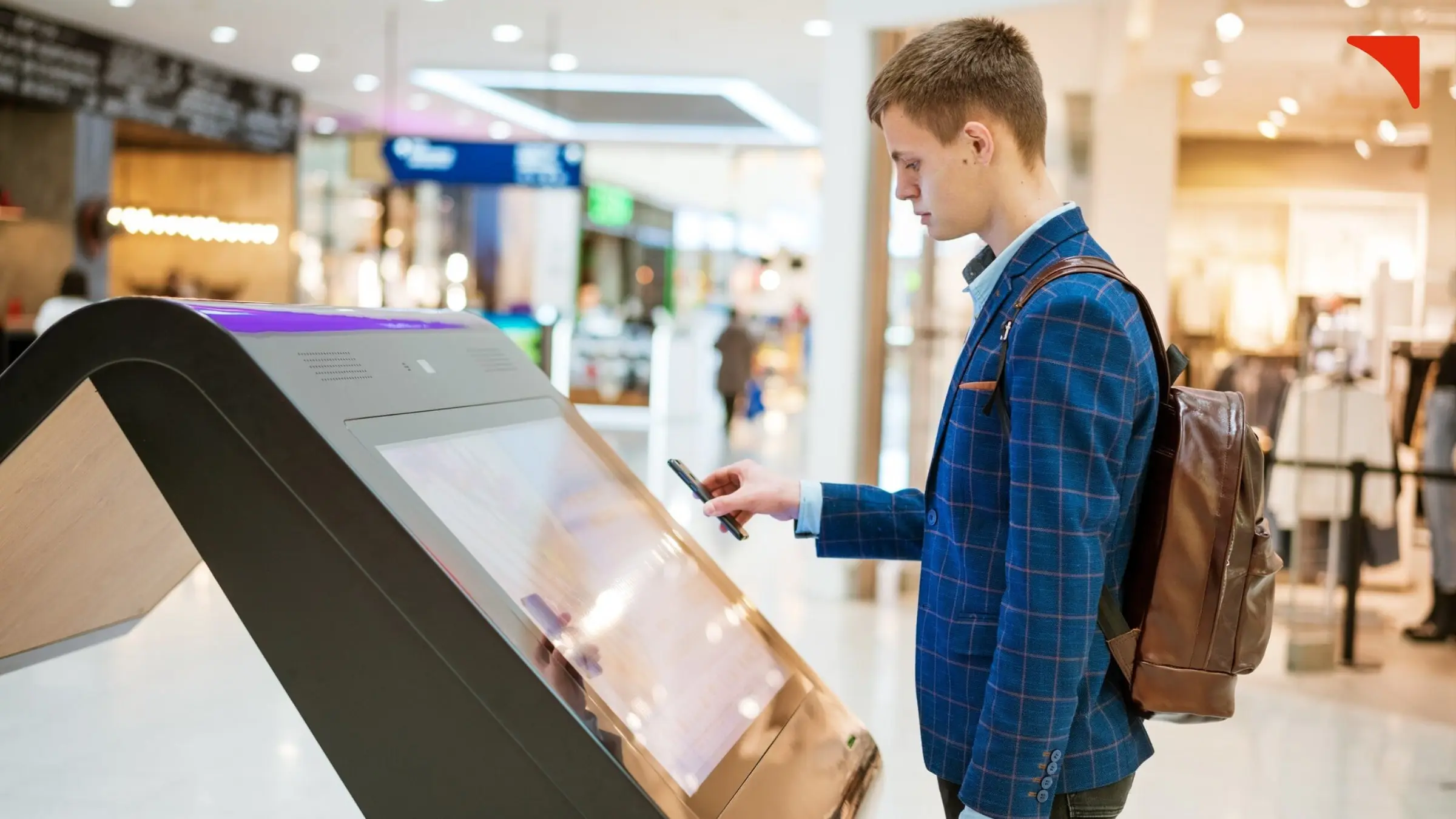IN-STORE DIGITALIZATION: THE BIRTH OF A NEW ERA FOR BUSINESS MODELS

People all over the world want to erase the time when the pandemic happened. In the years that followed, the world has never been the same.“But a simple universal law is that when something goes down it has to come up”. Those two years gap has caused businesses to bite the dust quite literally.
With business hitting their lowest, the retail companies found themselves scrambling to meet the demand for in-store or curbside pickup that was – on average 200% higher than pre-pandemic levels and according to a report by the Retail Industry Leaders Association, e-commerce as a share of total retail sales is set to reach exponentially after the pandemic. What can brick-and-mortar stores do to attract shoppers back to their doors?
CREATING A NEW IN-STORE EXPERIENCE

The pandemic fuelled the technologies to look and the work they do now. But for retailers were seeing the tip of the iceberg when the pandemic happened. But one thing was clear: they will be going to get their hands full with all these challenges that were coming.
Due to technological improvements, stores face intense competition. Therefore, it became a retailer's primary responsibility is to leave a "long-lasting impression" on the consumer, which may be achieved with the aid of technology and careful market research.
Given the rise in e-commerce sales, brick-and-mortar retailers must look into new strategies for attracting customers inside their establishments.
These strategies seek to connect with customers at all potential points of contact in order to affect their purchasing decisions. In order to compete with eCommerce websites and give customers a reason to visit their physical locations, ultimately physical stores now have to offer a superior customer experience. How would one make physical stores alluring to the people who hardly want to go out –– thinking it is too much of hard work?
Also, because more than 60% of people own smartphones and the majority of them use them to research various products & their specifications, make comparisons, and read reviews while they are inside a retail store, it has been determined through careful observation of customer behaviour that factors like increased income and lack of time have led to the increase in customer expectations from retailers.
ROLE OF TECHNOLOGY IN RETAIL

This is an era for social media to shine like a diamond. With extensive social media marketing, customers are absorbing a lot of information on their mobile devices which are bringing them into the store, making it important for retailers to understand how customers are going to use technology in relation to shopping. Global retailers have built their competitive advantage by building their business models around it.
Because the retail sector has such thin profit margins, optimising logistics and other procedures is crucial. Ultimately, brick-and-mortar retailers' survival depends on finding a balance, keeping organizational flexibility, and keeping an eye on technological and consumer changes.
Retailers, therefore, aim to use technology to enhance their total customer offering and not get lost and forgotten in the completive landscape.
THE CONSUMER'S INTERACTION WITH DIGITAL PLATFORMS HAS A SIGNIFICANT IMPACT ON THEIR PURCHASING BEHAVIOUR.

Today’s consumers are now searching, shopping, and buying products online. With shopping online has somehow become the norm. What the retailer could do that can attract the customer to its store? For that to happen they need to understand that when customers enter the store, they come with a great expectation from the retailer, the retailers can bank upon this opportunity by providing a compelling experience to consumers.
Thus, the focus has shifted to multichannel marketing where the challenge in the future would be to serve all channel buyers also called “Omni consumers”. Consumers expect a consistent relationship across digital channels and brick-and-mortar stores.
With more and more people using digital channels to buy products it is important for brick-and-mortar stores to engage their customers while in the store. To serve these Omni consumers better retailers must work to develop responsive, value, and customer-driven business models.
The retail industry is currently undergoing a revolution, establishing the framework and outlining the design of the stores of the future. In order to better serve customers, merchants with vision are focusing on enhancing their digital capabilities while surviving the transitions all the same. Hence the new business model, which depends on growing digital capabilities, must be utilised by physical merchants.
According to a research, 22% of organisational executives said they are currently engaged in some type of digital business. Within two years, 50% of them want to start a digital firm, and 83% intend to do so within three to five years. These important trends are supported by the findings of a report released by the biggest corporation in the world. That study found that digital 44 technologies currently affect 36%, or $1.1 trillion, of in-store retail transactions.
FACTORS PLAYING A MAJOR ROLE IN INSTORE DIGITALIZATION

Four of the various facets of in-store digitalization—convenience, modernism, cutting-edge technology, and virtual reality—are particularly important. The impact of various in-store digitalization features on consumers' decision to shop at a particular retailer in the future is investigated using multiple regressions. It is obvious that modernization, convenience, and virtual reality have a significant influence on consumers.
According to a study to see if there is a significant difference in how men and women perceive the adoption of digitization in-store experiences with respect to price, men are more likely than women to be advocates of technology and they believe in its advancement regardless of changes in the prices of goods.